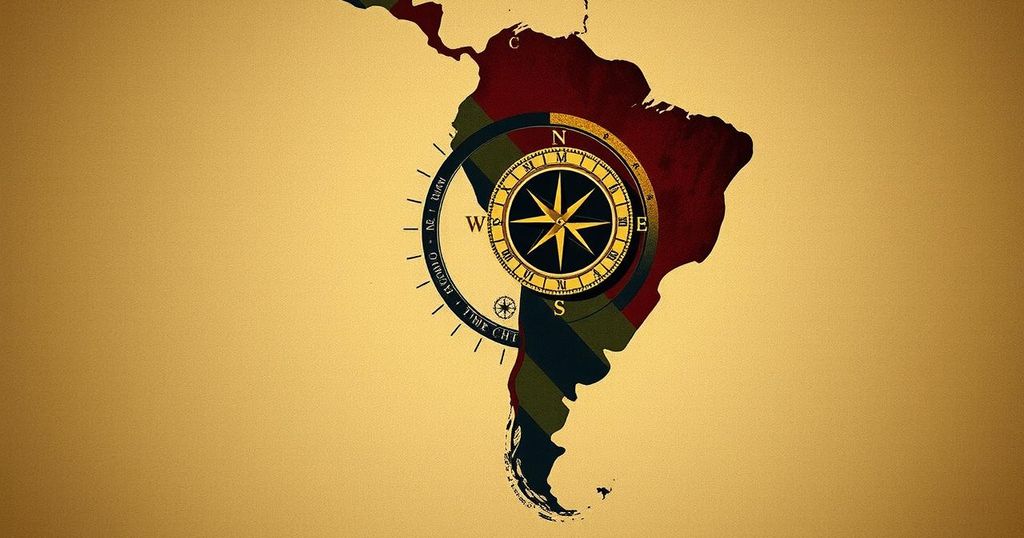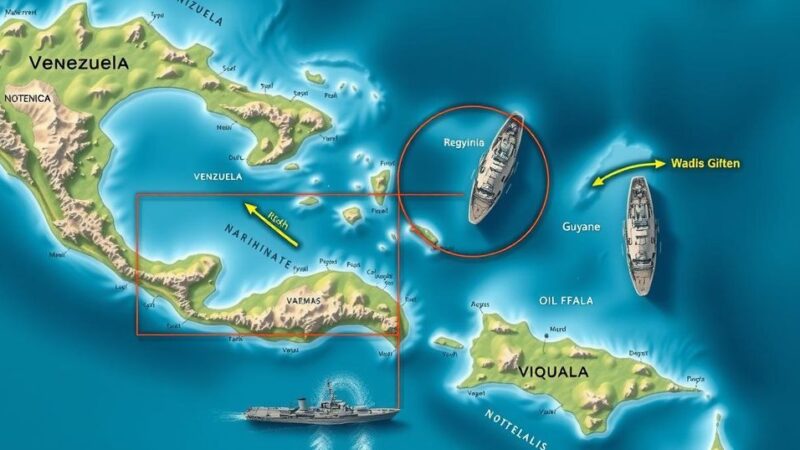The U.S. reaffirmed support for Guyana’s claim to the Essequibo region, prompting a fierce response from Venezuela, which labeled Secretary of State Rubio an “enemy”. The dispute centers on historical claims dating back to 1899, with both countries taking divergent paths in addressing the issue, particularly concerning the intervention of the International Court of Justice. Venezuela’s military presence and recent legal claims heighten concerns over the territorial conflict ahead of upcoming elections.
On January 27, United States Secretary of State Marco Rubio reaffirmed U.S. support for Guyana’s sovereignty over the Essequibo region, leading to a sharp response from Venezuelan Foreign Minister Yvan Gil. Gil labeled Rubio an “enemy of our country,” accusing him of harboring an “unhealthy obsession” aimed at undermining Venezuela. The Essequibo, a resource-rich area forming over two-thirds of Guyana’s territory, has been under Guyana’s control for more than a century.
Addressing the situation, Gil claimed that Rubio is attempting to bolster what he termed the “fantasies” of the Guyanese government, which seeks to diminish Venezuela’s historical claims. Gil emphasized that the resolution of the territorial dispute should adhere to the 1966 Geneva Agreement and should involve international law and regional peace, rather than the influence of third parties.
The dispute centers around the Essequibo, with historical arbitration establishing the border in 1899, favoring British Guiana (now Guyana). Following Guyana’s independence in 1966, a U.N.-sponsored treaty obliged both nations to solve disputes through international forums. After a failed negotiation in 2018, the U.N. Secretary-General appointed the International Court of Justice (ICJ) to determine the validity of the 1899 ruling.
Guyana has complied with U.N. guidelines, while Venezuela has reportedly violated international obligations. In December 2020, the ICJ agreed to take Guyana’s case but Venezuelan President Nicolas Maduro has consistently contested the court’s authority. Venezuela’s opposition to the ICJ’s jurisdiction has led to the announcement of controversial measures, including a planned referendum on Essequibo, which was deemed illegal by the Organization of American States.
In December 2023, Maduro ordered the establishment of a new Venezuelan state named “Guayana Esequiba” and unveiled a new map including Essequibo as Venezuelan territory. The Venezuelan government announced an immediate initiation of resource exploration in the area and the formation of state subsidiaries for this endeavor. Despite a mutual agreement with Guyana to refrain from threats, Venezuela intensified its military presence along the disputed border.
In March 2024, Venezuela’s National Assembly passed a law asserting Essequibo as a part of Venezuela, pending a constitutional ruling. Analysts suggest that this move is politically motivated, as Maduro aims to rally support ahead of the July 2024 elections. Recently, Venezuela completed a bridge linking its mainland to Ankoko Island, an area disputed by both countries, further complicating the territorial tensions.
The territorial dispute between Venezuela and Guyana over the Essequibo region, a resource-rich area, dates back over a century. The Essequibo constitutes more than two-thirds of Guyana’s total territory and has been administered by the country since its colonial period. After Guyana’s independence, a U.N.-sponsored treaty necessitated that any territorial disputes be resolved through international judicial means, specifically the ICJ. Despite this, Venezuela has consistently rejected ICJ jurisdiction, leading to heightened tensions between the two nations.
The ongoing conflict over the Essequibo region exemplifies the strained relations between Venezuela and Guyana, exacerbated by Venezuela’s non-compliance with international rulings and its provocative military actions. Current Venezuelan political maneuvers appear aimed at consolidating support ahead of approaching elections, while the U.N. maintains that resolution should follow established legal frameworks. The situation remains tense as both nations respond differently to the prevailing international agreements regarding their territorial claims.
Original Source: www.voanews.com






